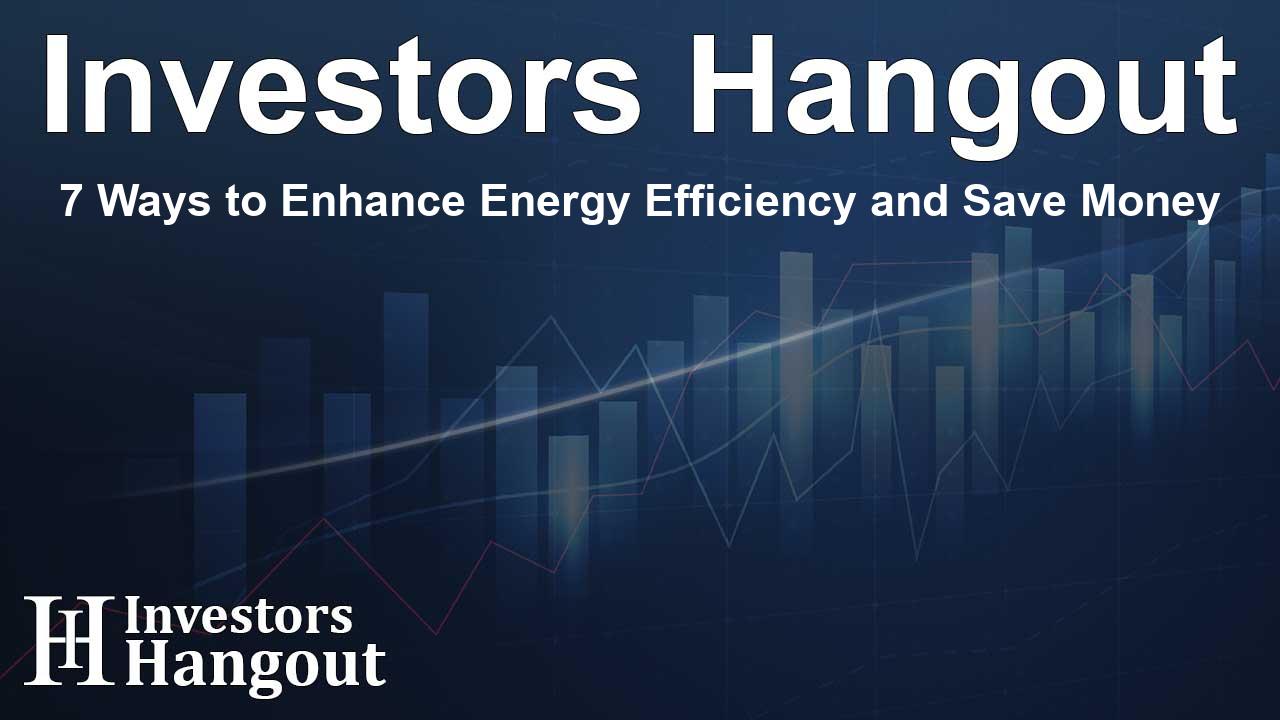Enhancing Energy Efficiency: 7 Practical Tips
As the seasons change, homeowners have a unique opportunity to make simple, effective changes that can lead to lower utility bills and improved comfort throughout the colder months. A striking number of homeowners recognize the importance of energy efficiency, yet many still overlook easy opportunities to enhance their home's performance.
Surprisingly, heating and cooling account for a significant portion of household energy consumption. In fact, these factors can represent 50-60% of total energy use in homes. Unfortunately, more than half of households may still be under-insulated and relying on outdated HVAC systems. Therefore, embracing efficiency now can yield significant benefits all winter long.
David Rames, senior product manager at Midea, highlights the importance of making efficiency a core focus. “It isn’t about completing one major improvement, it’s the accumulation of small steps that lead to greater comfort and savings,” he explains. Families are encouraged to utilize modern tools and technologies to effectively manage their energy bills and improve home comfort.
1. Seal the Gaps
Small air leaks around windows and doors can lead to substantial heating loss—up to 30% in some cases. To tackle this issue effectively, employ weather stripping and caulk to prevent air from escaping. Additionally, consider investing in attic insulation. Though it may require a small upfront investment, the long-term energy savings can be significant.
2. Upgrade to a Smart Thermostat
One of the simplest alterations homeowners can make is installing a programmable or smart thermostat. This device adjusts heating schedules automatically, potentially leading to annual savings of around $180. It's a straightforward solution that pays off quickly.
3. Keep Your HVAC Filter Fresh
Routine maintenance of your HVAC system can improve its efficiency dramatically. Replacing filters monthly during peak usage seasons facilitates better airflow and reduces unnecessary strain on the system. For optimal performance, never underestimate the power of clean filters.
4. Invest in High-Efficiency Systems
Older HVAC systems may be costing you more than you realize. Upgrading to high-efficiency heat pumps can slash your heating costs by up to 50%. Additionally, these systems often provide efficient cooling solutions for summer months, making them a versatile investment.
5. Explore Advanced Heating Technologies
Consider next-generation heat pumps designed for reliable performance even in extreme cold. For instance, the Midea EVOX All Climate Heat Pump offers impressive heating output down to -31°F, continuing to operate even at -40°F. This means efficient heating solutions are available even in the harshest environments.
6. Capitalize on Available Rebates
Energy-efficient upgrades don’t have to break the bank. There are often federal, state, and local utility programs available to assist consumers in saving thousands on qualifying heat pump systems. Be sure to investigate these offers before making any final purchase decisions.
7. Check for CVP Ratings
When selecting heating systems, look for those tested under the Controls Verification Procedure (CVP). This ensures that the efficiency numbers advertised are achievable in real-world settings. Midea has been a pioneer in achieving CVP certification, providing homeowners with peace of mind regarding actual performance.
As the fall season approaches, it’s crucial for homeowners to cultivate awareness of energy efficiency. Making these improvements can lead to substantial savings, enhance comfort, and contribute to a more sustainable future for families. Rames believes that “Efficiency is no longer just a luxury; it’s a necessity for comfort and cost savings.” With empowered choices, families can gain control over their energy expenditures and ensure a more comfortable home this winter and beyond.
For further inquiries or support, feel free to contact Midea at 1-888-643-3262.
Frequently Asked Questions
What are the benefits of sealing air leaks in my home?
Sealing air leaks can significantly reduce heating loss and improve energy efficiency, leading to lower utility bills.
How much can a smart thermostat save me annually?
Implementing a smart thermostat can save homeowners up to $180 per year through optimized temperature scheduling.
Why is it important to replace HVAC filters regularly?
Regularly changing HVAC filters enhances airflow and reduces stress on the HVAC system, contributing to better overall efficiency.
What is the advantage of using high-efficiency heat pumps?
High-efficiency heat pumps can reduce heating costs by up to 50% and provide cooling solutions during warmer months.
Are there financial assistance programs for energy-efficient upgrades?
Yes, many federal, state, and local programs provide rebates or incentives to help consumers afford energy-efficient improvements.
About The Author
Contact Riley Hayes privately here. Or send an email with ATTN: Riley Hayes as the subject to contact@investorshangout.com.
About Investors Hangout
Investors Hangout is a leading online stock forum for financial discussion and learning, offering a wide range of free tools and resources. It draws in traders of all levels, who exchange market knowledge, investigate trading tactics, and keep an eye on industry developments in real time. Featuring financial articles, stock message boards, quotes, charts, company profiles, and live news updates. Through cooperative learning and a wealth of informational resources, it helps users from novices creating their first portfolios to experts honing their techniques. Join Investors Hangout today: https://investorshangout.com/
The content of this article is based on factual, publicly available information and does not represent legal, financial, or investment advice. Investors Hangout does not offer financial advice, and the author is not a licensed financial advisor. Consult a qualified advisor before making any financial or investment decisions based on this article. This article should not be considered advice to purchase, sell, or hold any securities or other investments. If any of the material provided here is inaccurate, please contact us for corrections.

